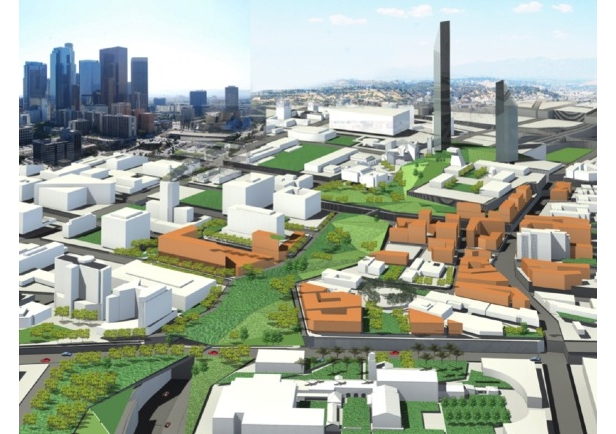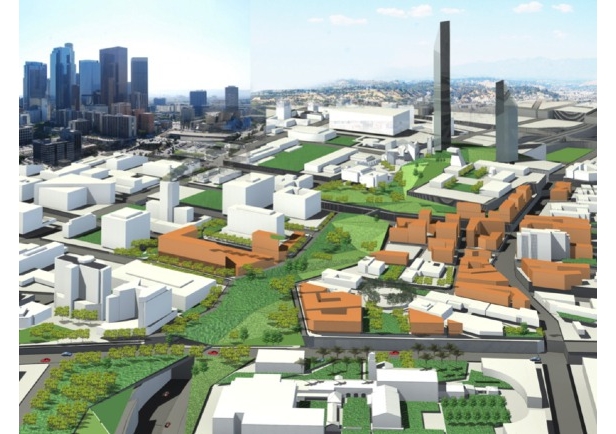The Gulf oil spill story is too big to ignore right now. It’s a massive, toxic indictment of our dependency on fuels that fill our atmosphere with heat-trapping pollutants even when everything goes right.
But there are other stories too big to ignore, including the story of people finding creative ways to escape the death grip of fossil fuels on their cities and towns. That story has spread even further than the BP oil slick. Here’s some news from the front:
Tokyo
Last month the largest city in the world introduced the first-ever cap-and-trade system for a metro area, a plan that applies to 1,400 factories and office buildings. The project is driving demand for buildings with ever-more-ambitious energy and water systems. New incentives for rooftop solar are coming online too. So are enhancements to a recycling network that’s already a global leader: 99 percent of Tokyo asphalt and concrete and 72 percent of paper is reused.
Los Angeles
The City of Freeways is working to cap a below-grade section of freeway with a large park that will bring greenery to the urban landscape and link once-fractured neighborhoods. The estimated $800 million project may be tough to pull off in its entirely, but a modular design will let it sprout forth section by section.

Delhi
India’s capital hopes to add bike pathways along the city’s polluted nullahs, or canals. A plan by Architect Manit Rastogi would clean up the overused waterways and add bike paths on the embankments, easing congestion and providing safe routes in the perennially traffic-choked city of 17 million. CNN’s got a video of the plan:


